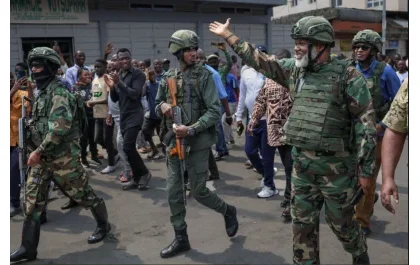The rebel coalition AFC/M23, which is fighting against the government of the Democratic Republic of Congo (DRC), has taken new measures to combat insecurity and social decay in Goma by banning the sale of drugs and alcohol in containers smaller than 300 milliliters.
Julien Ndalieni Katembo, the mayor appointed by the AFC/M23 administration, announced the new policy during a community meeting held in Goma on Tuesday. He stated that the aim is to restore dignity and order in the DRC, which he said has long been plagued by open drug use and trafficking.
“DRC must regain its respect,” said Mayor Katembo. “We cannot leave behind a country of drunkards. If you believe your life depends on selling cannabis, give it up.”
The new regulations permit only bottled alcoholic beverages, explicitly banning those sold in sachets. “What alcohol is allowed?” Katembo asked rhetorically. “Only what’s sold in bottles. Not in sachets—we don’t want to see them anymore. Students hide ‘Chief’ (a local alcohol brand) in their pockets and cause chaos in schools.”
Plastic bottles are allowed only if they contain at least 300 milliliters, he added.
Goma, the capital of North Kivu Province, has long been a hotspot for instability, with drug abuse and trafficking contributing to insecurity. Cannabis, in particular, has been openly sold and consumed, with reports of cross-border smuggling into neighboring countries.

Since taking control of Goma in January 2025, the AFC/M23 coalition has prioritized restoring security through disarmament operations and cracking down on criminal activities. Hidden weapons have been seized, and individuals suspected of planning unrest have been detained.
AFC/M23 says its broader mission is to reform the DRC’s governance, which it claims has neglected the welfare and safety of its citizens. Although the group has paused military expansion since March 2025, it has been engaged in negotiations with the central government in Qatar.



